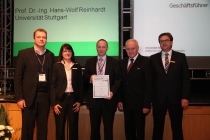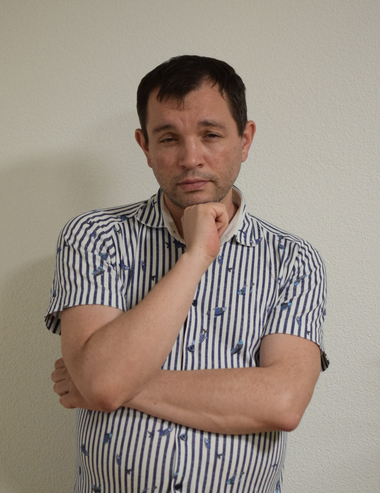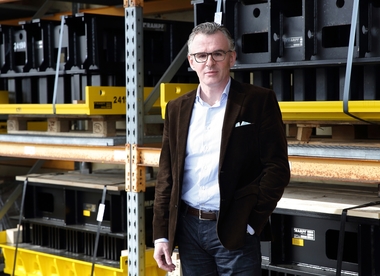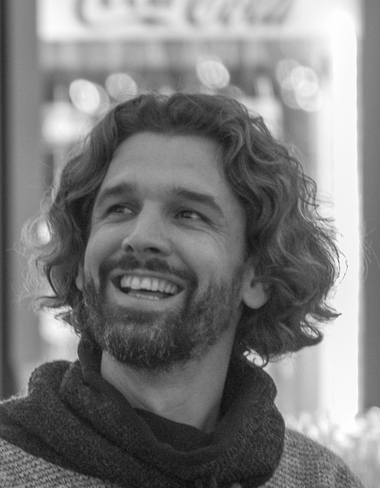Interview: Taskforce SCM@baustoffe
In an interview with the BFT editorial team, Prof. Dr. Götz-Andreas Kemmner, Managing Director of the management consultancy Abels & Kemmner, and Hans-Peter Oßner, Managing Director at hpossner consulting, explain why the two companies have joined forces to form a taskforce called SCM@baustoffe, to optimize supply chain management.
BFT International: Why is there a need for a supply chain management task force and what benefits can the precast concrete industry derive from it?
Hans-Peter Oßner: The management consultancy company hpossner consulting specializes in the building materials industry. Here we have already implemented many projects in the areas of increasing the efficiency for production and maintenance, change and project management. When it comes to optimizing supply chain management, we strengthen our competencies by cooperating with the cross-industry experts from Abels & Kemmner. This resulted in the SCM@baustoffe task force.
Götz-Andreas Kemmner: The benefits for the precast concrete industry are obvious: We are experts in optimizing the planning and management of supply chains, and hpossner consulting knows the building materials industry and the building materials trade inside out. Here, we primarily address companies that are struggling with the challenges of determining planned requirements for production and purchasing and managing inventories and delivery readiness - companies that ultimately lose not inconsiderable revenue due to poor delivery readiness.
BFT International: Which submarkets do you see in the precast concrete industry that can benefit from improved scheduling management?
Götz-Andreas Kemmner: Basically, these are all companies in the industry that have a finished goods warehouse and do not manufacture exclusively to order. Given the strong seasonal nature of the building materials industry, it is no easy task to design this warehouse in such a way that neither inventory levels are too high nor delivery readiness are too low at any time.
Hans-Peter Oßner: Specifically, we are addressing manufacturers of structural precast elements such as walls, ceilings and columns, concrete products such as paving stones, and pipes and manholes, who deliver to wholesalers, DIY stores or even directly to construction sites. Larger building materials distributors for the trades are also a target group.
Götz-Andreas Kemmner: Particularly in the case of concrete products, which are also subject to a certain fashion trend and are offered in numerous variants, the scheduling tasks are complex. But even standard products for the DIY market are not easy to plan, as retailers always demand full shelves, impose penalties if deliveries are not made, and even campaigns do not make planning any easier.
BFT International: How would you formulate the added value of your optimization measures in a few sentences?
Götz-Andreas Kemmner: We increase the readiness to deliver and still reduce inventories, so that customer satisfaction and sales increase - this with decreasing capital commitment in relation to sales. And let me explain the other benefits in addition to this one core principle: Companies can grow faster from their own resources, which may not be the deciding factor when interest rates are low. But inventories also cost money for insurance, storage capacity and handling, and these are quickly double-digit percentage costs in relation to the inventory values.
BFT International: What are the concrete tasks to achieve this?
Hans-Peter Oßner: Disposition parameters must be checked and optimized, and the disposition must be automated. Gut feelings are thus replaced by clear sets of rules and algorithms and artificial intelligence then simulates the requirements depending on, for example, predefined high 95 to 98 percent delivery readiness levels - related to individual order requests and/or article groups. This is not only the case for products for which historical developments indicate sales in the future. We also integrate sales plans for new product launches and seasonal special requirements here.
BFT International: Is there anything you can do that other experts can‘t?
Götz-Andreas Kemmner: Basically, we all put our pants on one leg at a time. But the quality of the pants we chose can differ. We think that customers would rate us as a guarantor of premium trousers. We do deliver designer pants, but at reasonable prices. For example, we have recently started to use artificial intelligence for safety stock planning to determine the best possible stock mix across all article classes.
BFT International: That whets one’s appetite for more. Mr. Oßner, Professor Kemmner, thank you for the interview!
Interview: Silvio Schade,
Chefredakteur BFT International








